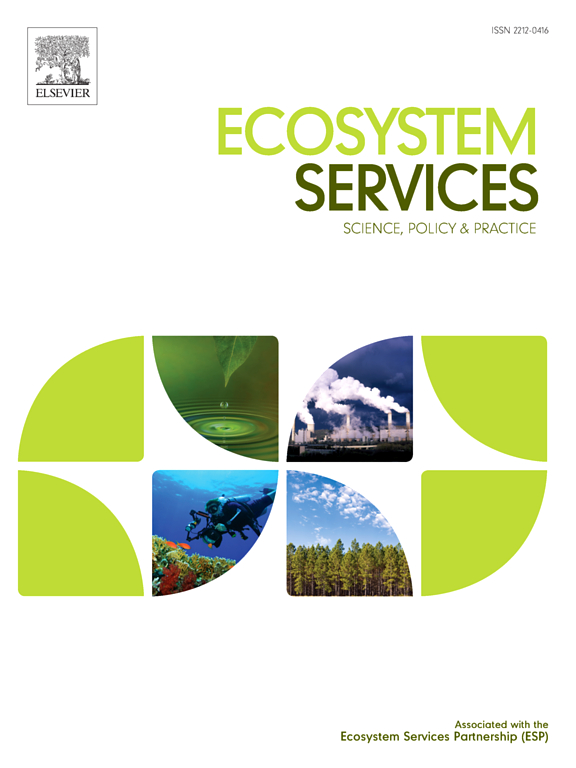改善加拿大萨斯喀彻温河三角洲生态状况的经济价值
IF 6.6
2区 环境科学与生态学
Q1 ECOLOGY
引用次数: 0
摘要
由于上游开发和人类活动,世界各地的河流三角洲都经历了生态衰退。然而,评估生态系统恢复的货币化效益是具有挑战性的,因为人们对这些自然区域持有的许多价值不太有形。本文采用陈述偏好调查方法量化了河流三角洲生态保护的非利用价值。我们以加拿大萨斯喀彻温河三角洲为研究对象,开展并管理了一项全国性调查,以了解人们对鱼类和野生动物种群水平变化以及良好生态条件下栖息地范围变化的恢复方案的偏好。我们发现,加拿大人愿意为河流三角洲的修复改善支付费用,并且不同人群对修复方案的偏好存在差异。具有非线性属性水平的模型比线性属性规范更适合选择数据,这表明随着生态改善的增加,边际支付意愿存在递减。萨斯喀彻温河三角洲未来的年度货币化收益估计为每户79至223美元,具体取决于恢复工作的水平。这项研究提供了经验证据,证明远离自然地区的人也能从自然中受益。本文章由计算机程序翻译,如有差异,请以英文原文为准。
The economic value of improving the ecological condition of the Saskatchewan River Delta, Canada
River deltas around the world have experienced ecological decline due to upstream development and human activities. However, assessing the monetized benefits of ecosystem restoration is challenging due to the less tangible nature of many values that people hold for these natural areas. This paper quantifies the non-use values for river delta ecological conservation using a stated preference survey. The empirical application is the Saskatchewan River Delta in Canada where we develop and administer a national survey to elicit people’s preferences for restoration scenarios with changing fish and wildlife population levels and changes in the extent of habitat in good ecological condition. We find that Canadians are willing to pay for river delta restoration improvements, and preferences for restoration options are heterogeneous across the population. Models with nonlinear attribute levels fit the choice data better than linear attribute specifications suggesting the presence of diminishing marginal willingness to pay as ecological improvements increase. The annual monetized benefits for Saskatchewan River Delta future scenarios are estimated to be $79 to $223 per household depending on the level of restoration efforts. This study contributes to the empirical evidence that the benefits of nature accrue to people that live far away from natural areas.
求助全文
通过发布文献求助,成功后即可免费获取论文全文。
去求助
来源期刊

Ecosystem Services
ECOLOGYENVIRONMENTAL SCIENCES&-ENVIRONMENTAL SCIENCES
CiteScore
14.90
自引率
7.90%
发文量
109
期刊介绍:
Ecosystem Services is an international, interdisciplinary journal that is associated with the Ecosystem Services Partnership (ESP). The journal is dedicated to exploring the science, policy, and practice related to ecosystem services, which are the various ways in which ecosystems contribute to human well-being, both directly and indirectly.
Ecosystem Services contributes to the broader goal of ensuring that the benefits of ecosystems are recognized, valued, and sustainably managed for the well-being of current and future generations. The journal serves as a platform for scholars, practitioners, policymakers, and other stakeholders to share their findings and insights, fostering collaboration and innovation in the field of ecosystem services.
 求助内容:
求助内容: 应助结果提醒方式:
应助结果提醒方式:


